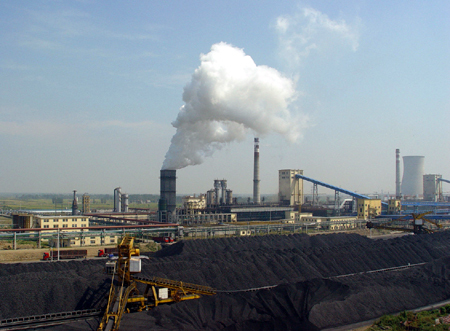You pay as you fill up the tank. In other words, the more you drive, the more it costs you - and the planet.
This is a simple market rule but it has taken nearly two decades for the government to pick a "proper time" to implement it amid the sharp fluctuation of global oil prices. The Chinese government has finally decided to start a fuel tax plan beginning January 1.

According to the plan, the gasoline tax will increase from 0.2 yuan to 1 yuan per liter, and go from 0.1 yuan to 0.8 yuan per liter for diesel. And six categories of tolls for road maintenance and management will be scrapped.
Taking the taxes and global oil price declines into account, the National Development and Reform Commission announced domestic fuel price cuts in mid-December. The current fuel prices in the country are based on US$83.5 per barrel of crude. But the price in the international market has fallen drastically in the past few months from the record high of US$147 a barrel to a four-and-a-half-year low recently of US$36 a barrel.
It means the Chinese government could announce further fuel price cuts in 2009, as the goal of its fuel price reform is to let the market have its say.
In looking back at 2008, the price and tax reforms should be listed as a significant energy-related event in China.
A widespread argument is that the changes are likely to encourage car buying and rejuvenate the auto industry, which has been hit hard by the global financial crisis. And that's also good in order to maintain higher economic growth as the government has signaled its intention to prop up the sluggish auto and real estate sectors to shore up prosperity.
But please be cautious.
These policies have been rolled out under the context of low-price fuels and economic recession. But they are very likely to mislead auto buyers to use low rate loans to purchase vehicles to drive at cheaper fuel rates in a slumping economy. But when the growth picks up, they have no choice but to park the cars at home because of rising fuel bills.
When considering China's auto policy and economic stimulus plans, environmental and energy implications should also be carefully thought out. Otherwise, car owners will suffer if they want to drive and the environment will also suffer.
There are two likely reasons for these scenarios.
Clean-fuel vehicles are still far away and China is a country with a population of 1.3 billion where many are dreaming of owning a car with few, if any, environmental considerations.